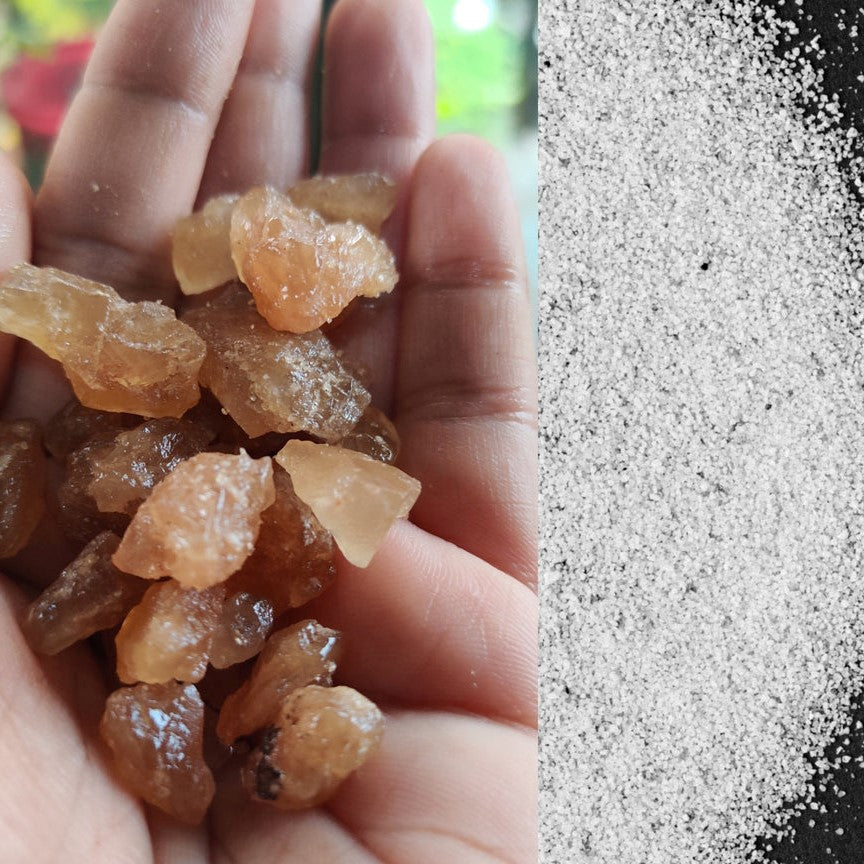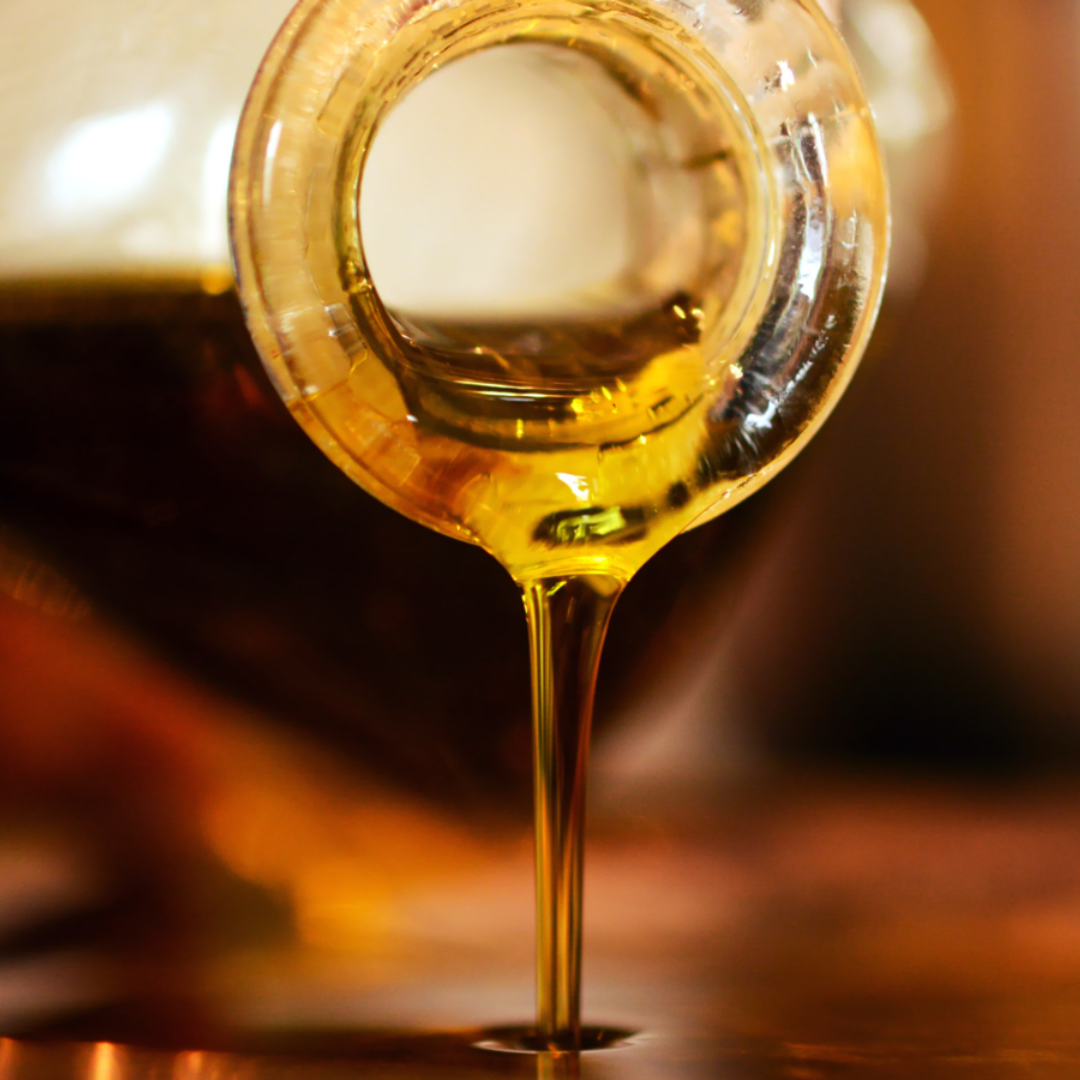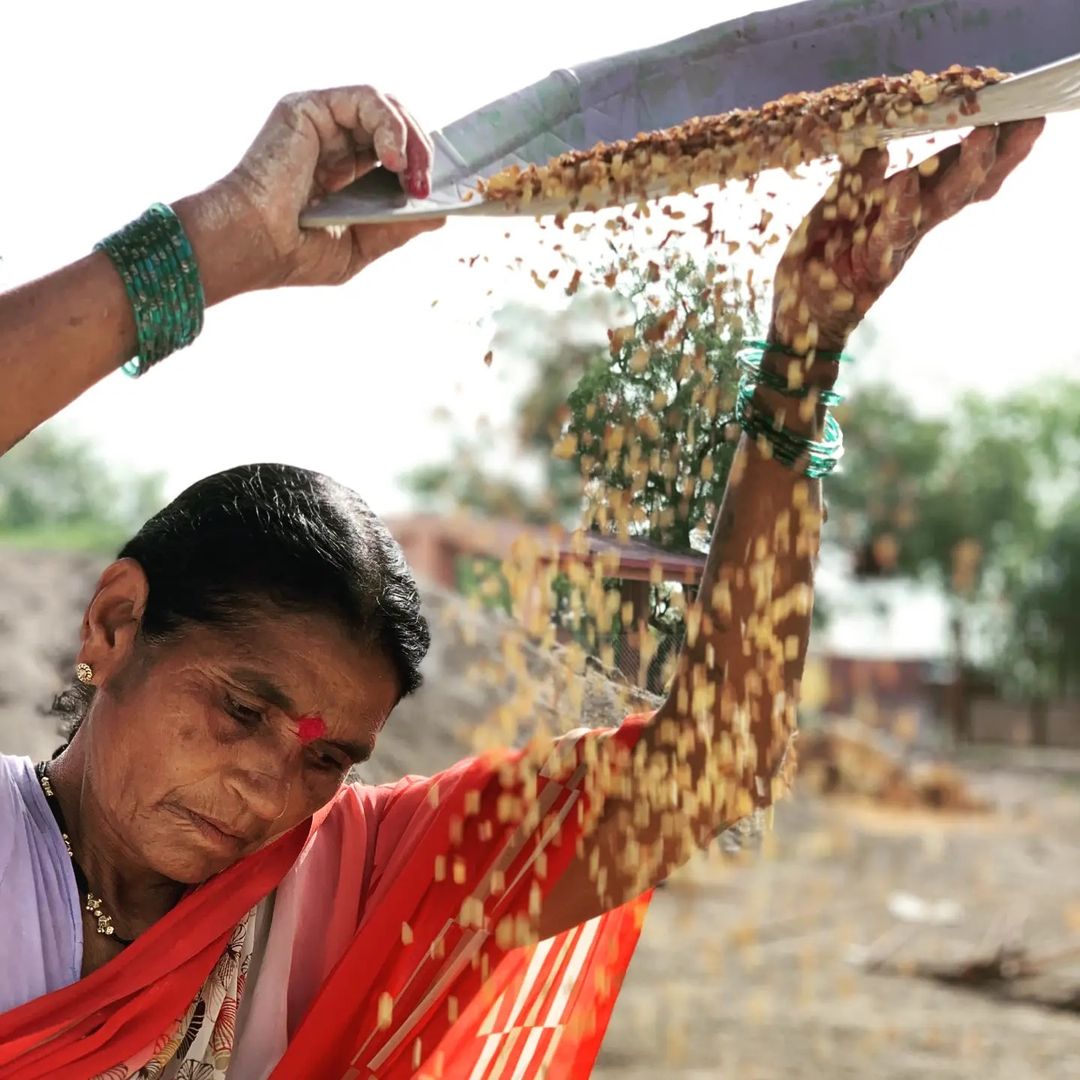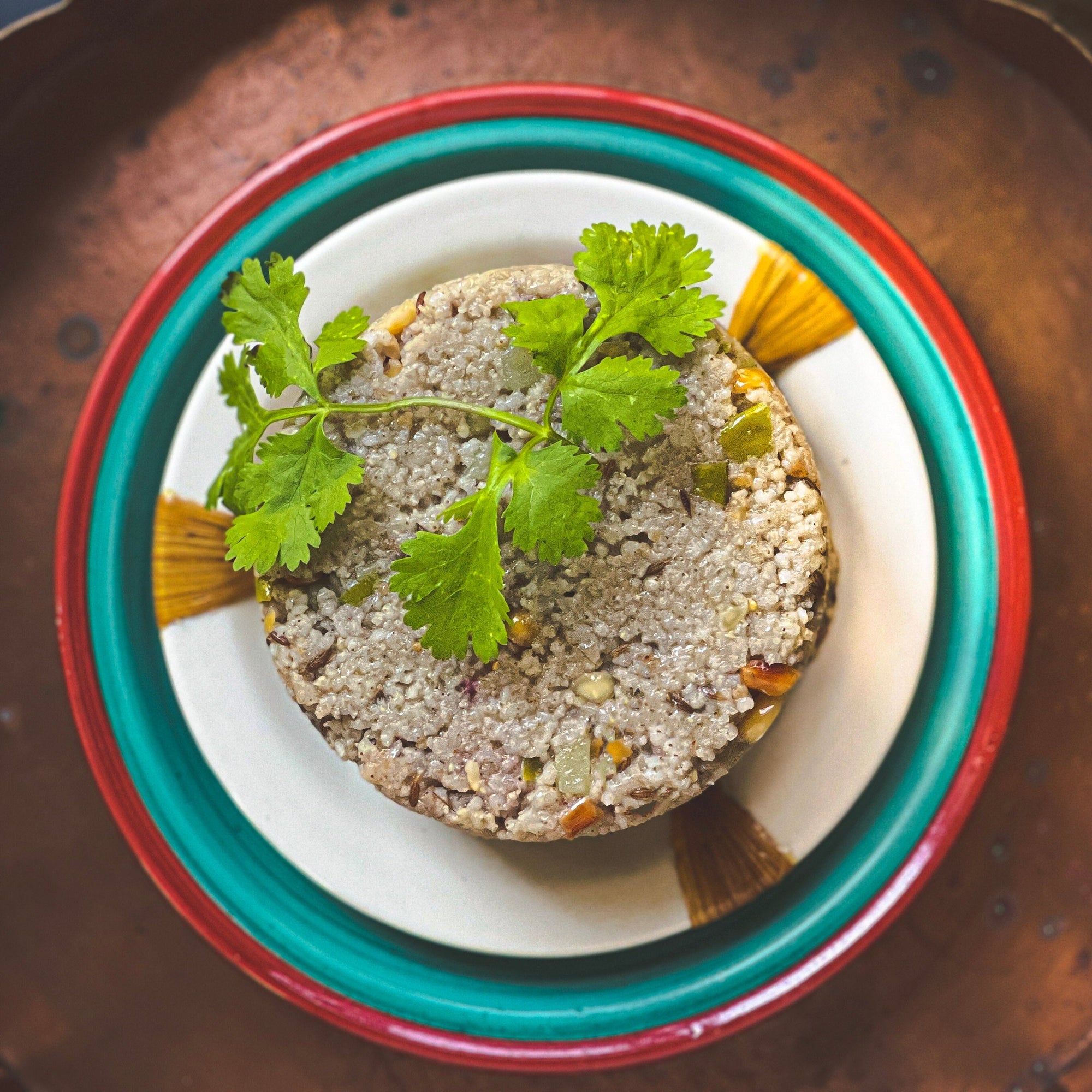The long-forgotten oilseed niger seeds, sometimes referred to as Khurashni or Ram Til, are extremely valuable in tribal medicine. These seeds are small, spherical, and dark in color. They are made from the Guizotia abyssinica plant. They have a rich history that spans centuries, even though many people may not be familiar with them.
Tribal societies used Niger seeds extensively in the past, especially in medicine. These seeds were used medicinally by tribes to cure a variety of conditions, including bronchitis, asthma, and wheezing. Additionally, the seeds were utilized to treat skin ailments and support liver and heart function. As the health benefits of Niger seeds are being rediscovered, they are making a comeback today.
Niger seeds are prized for their nutritional content in addition to their medical use. These small seeds are packed with vital nutrients, including fiber, protein, and vitamins and minerals. They include a lot of heart-healthy fatty acids, such as oleic acid, which is abundant in them. Including Niger seeds in your diet can improve your general health and well-being in a number of ways.

Uncovering Niger Seeds: Antiquated Grains with Contemporary Advantages
Tribal societies have long utilized nigger seeds, sometimes known as ancient grains, for their therapeutic qualities. Originating from the Guizotia abyssinica plant, these seeds have seen a resurgence recently because of its contemporary health advantages. Niger seeds, which are well-known for their anti-inflammatory, antioxidant, and antibacterial qualities, are being researched for their potential to treat a range of illnesses, such as liver problems, heart problems, and respiratory issues.

Niger Seeds' Historical Significance in Tribal Cultures
Tribal societies place great historical value to nigger seeds. These seeds have long been employed by tribes as a component of their traditional medical treatments. Generation after generation, tribal elders have imparted knowledge on the uses and advantages of Niger seeds.
They were thought to be natural treatments for a number of illnesses, such as skin and respiratory disorders. Niger seeds were used by tribes to make herbal treatments and oils for therapeutic purposes. Niger seeds are still widely used in tribal medicine today, and their historical value is still acknowledged.
Analytical Profile: Revealing the Health Advantages
Niger seeds have a high nutritional profile that shows many health advantages. The following are some salient points:
- High in Protein: Niger seeds are a great way to receive plant-based protein, which is why they're a great complement to vegan and vegetarian diets.
- High in Fiber: The high fiber content of these seeds facilitates good digestion and supports a strong digestive system.
- Rich in Minerals and Vitamins: Niger seeds are a great source of minerals and vitamins, including potassium and magnesium, which are vital for general health. These include vitamins like vitamin E.
- Heart-Healthy Fats: The fatty acids included in Niger seeds, such as oleic acid, are good for the heart.
- Antioxidant Properties: Antioxidants found in nigger seeds help shield the body from oxidative stress and may lower the chance of developing chronic illnesses.
From Seed to Oil
Niger seeds must be cultivated and harvested using age-old farming techniques that have been passed down through the generations. Usually, these seeds are grown in warm regions, including Africa and India. The steps involved in cultivation are preparing the soil, planting the seeds, and giving them the attention and resources they need to flourish. After reaching maturity, the seeds are meticulously collected to guarantee the best possible flavor and quality. The precious oil in the collected seeds is subsequently extracted by processing.
How Niger Seeds Are Extracted for Their Oil
To guarantee that the oil maintains its nutritional qualities, Niger seed oil extraction is a careful procedure. Here is a detailed explanation of the extraction procedure:
- Cleaning and Sorting: To get rid of any contaminants or damaged seeds, the harvested Niger seeds are carefully cleaned and sorted.
- Crushing and Pressing: Smaller fragments of the cleaned seeds are crushed. After that, the crushed seeds are put through a cold pressing process that uses pressure instead of heat to extract the oil.
- Filtering: To produce pure, clear oil, any leftover contaminants are taken out of the extracted oil using filtering.
The resultant oil has a subtle nutty flavor and a lovely golden color. The oil's flavor and nutritional content are preserved through cold pressing, which guarantees less heat exposure.
Applications in Medicine: A Tribal Tradition
Tribal societies have traditionally used nigger seeds in their traditional medical treatments. Tribal communities have long used Niger seeds' therapeutic qualities to cure a range of illnesses. The seeds are utilized in herbal treatments, oils, and poultices.
Niger Seed Oil Application in Traditional Medicine
An essential component of traditional medical procedures is nigger seed oil. The oil is useful in a variety of therapeutic compositions due to its well-known anti-inflammatory, antibacterial, and antioxidant qualities. Niger seed oil is utilized in tribal cultures as a massage oil to treat respiratory conditions such as bronchitis, asthma, and wheezing. It is also utilized topically to cure and relieve skin ailments. The oil can be used in relaxation techniques because it is said to have a relaxing impact on the body and mind.
The relevance of Niger seed oil in tribal medicine is shown by the traditional wisdom that has been passed down through the years.

Current Research Backs Up Old Uses
The historical use of Niger seeds in traditional medicine are starting to come to light thanks to modern study. Researchers and scientists are looking into the medicinal qualities of these seeds and how they might be used to treat a range of illnesses. Niger seed oil may contain anti-inflammatory properties, which could be helpful in lowering inflammation-related illnesses, according to preliminary research. The oil may also be effective against some diseases due to its antibacterial qualities. Additionally, studies have indicated that the antioxidant chemicals present in Niger seeds may be able to guard against oxidative stress and lower the chance of developing chronic illnesses.
The evidence supporting the traditional usage of Niger seeds in tribal medicine is mounting as contemporary science advances.
Beyond Medicine: Culinary Applications
Niger seeds have uses in cooking that go beyond traditional medicine, even though they are mainly used for therapeutic purposes. The oil derived from Niger seeds gives a variety of foods a distinct flavor and nutritional benefit.
Including Niger Seeds in Your Diet Every Day
One of the best ways to take advantage of Niger seeds' health advantages is to include them in your regular diet. The following are a few easy ways to incorporate Niger seeds into your meals:
- Sprinkle on Salads: To give your salads an extra crunch and nutty flavor, sprinkle over some roasted Niger seeds.
- Blend in Smoothies: To increase the nutritious value of your favorite smoothie recipes, add Niger seeds.
- As a Topping: To add texture and flavor to soups, stir-fries, or roasted vegetables, sprinkle roasted Niger seeds on top.
- Create a Nutritious Trail Mix: To make a wholesome and filling snack, mix roasted Niger seeds with other nuts, dried fruits, and seeds.
You can take advantage of Niger seeds' nutritional advantages and give your meals a distinctive touch by including them in your regular diet.
Tastes from Tribal Kitchens: An Epicurean Adventure
A gastronomic voyage through the many applications of Niger seeds can be had by investigating recipes from tribal kitchens. These recipes highlight how adaptable Niger seeds are and how they may improve the flavor of classic foods.
Niger seeds are versatile and can be used in chutneys and curries. Moong Dal Khichdi, paired with an intense tadka made with Niger seed oil, is a well-liked recipe. This dish brings together the nutty flavor of Niger seed oil with the benefits of lentils, rice, and spices. A traditional tribal chutney made with roasted Niger seeds, coconut, and spices is another dish. These recipes showcase the distinct flavors that Niger seeds provide to the diet of the tribes and offer an insight into their culinary history.
Conclusion
Often disregarded, nigger seeds have numerous health advantages and hold great cultural importance. These seeds offer a special combination of nutrition and sustainability, with usage ranging from traditional medical applications to contemporary culinary uses. Through investigating the nutrient composition and rich history of Niger seeds, we unearth a holistic approach to well-being that unites traditional wisdom with modern demands. Accepting this long-forgotten oilseed promotes biodiversity and sustainable farming methods in addition to improving our meals. Explore the many applications of Niger seeds in traditional medicine and other fields, and set out on a path that blends environmental conscience, health, and tradition.
Frequently Asked Questions
What are the main advantages of Niger seeds for health?
Niger seeds are packed with health benefits, such as strengthening liver function, heart health, and supplying vital nutrients including fiber, protein, and vitamins and minerals.
What role do Niger seeds play in agriculture that is sustainable?
By preserving the environment, encouraging biodiversity, and adhering to traditional agricultural methods that reduce the use of chemical pesticides and fertilizers, Niger seeds support sustainable agriculture.
Can you use Niger seed oil in contemporary cooking?
Yes, you can use Niger seed oil in contemporary cooking. It gives food a subtle nutty flavor and is frequently used as a garnish, tempering, or stir-fry ingredient.
https://en.wikipedia.org/wiki/Ramtil_oil






